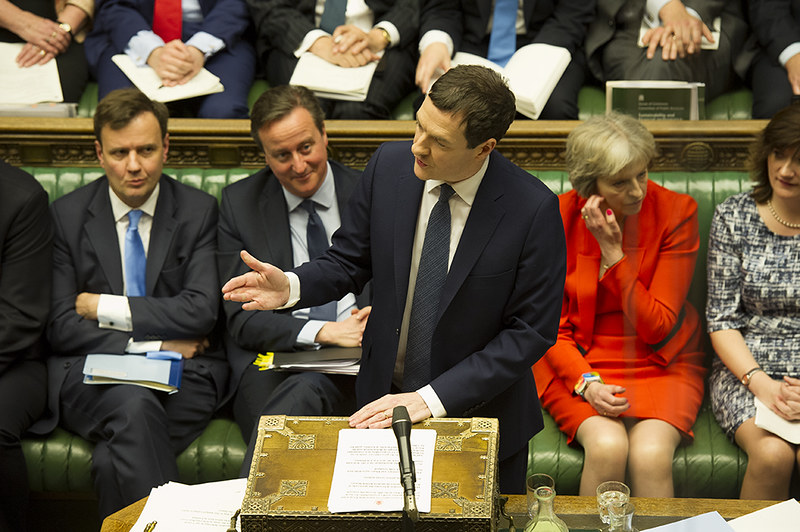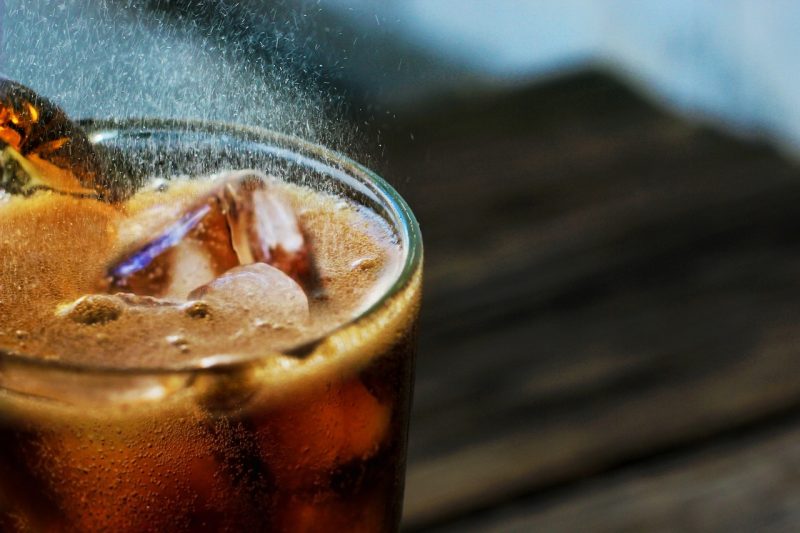The implementation of the soft drinks industry levy, known as the ‘sugary drinks tax’, resulted in a drop in the level of child obesity in England, research reveals.
Research led by University of Cambridge’s Medical Research Council’s (MRC) Epidemiology Unit concluded that the levy may have prevented over 5,000 cases of obesity among older primary school children.
Announced in the 2016 budget following pressure from campaigners including chef Jamie Oliver, the levy was designed by former Chancellor George Osborne to incentivise drinks manufacturers to reduce their sugar content.

Nina Rogers, 43, the study’s first author said: “What we found was that barely two years after the sugar tax was implemented in April 2018, there was a reduction in the levels of obesity overall in the population and specifically in girls in year six.
“We know from our research that people’s sugar consumption has gone down as a result of the levy and it has health benefits beyond that of tackling obesity.”
The study tracked changes in the obesity levels of one million children in state-maintained English primary schools in reception and year six from before and after the sugar tax came into effect.
It found that there was an 8% relative reduction in obesity in girls aged 10-11, the equivalent of preventing 5,234 cases of obesity per year.
There was also a 9% relative reduction in the levels of obesity of children from the most deprived areas.
The levy had no consistent effect on the obesity level in reception age children, who drink more fruit and milk-based drinks than soft drinks, and year six boys, who may be more targeted by, and susceptible to, marketing campaigns.
Rogers said: “There has been an improvement in obesity but I don’t think we will continue to see an increase in better health unless they include more drinks in the levy.
“There is more that can be done that is not necessarily focused on drinks, maybe they should be looking at other types of foods and drinks.
“The levy is not just a silver bullet, there is lots more to address.”
A Government spokesperson from HM Treasury said: “The Government keeps all taxes under review and will continue to monitor the impact of the Soft Drinks Industry Levy in line with public health objectives, such as tackling obesity.”
According to the UK Research and Innovation public body, young people in the UK consume 40g more sugar than the recommended 30g amount, a large proportion of which comes from sugar-sweetened beverages (SSBs).
This leads to one third of children leaving primary school being overweight or obese, which later transcends to two-thirds of adults living above a healthy weight, based on Gov.UK figures.
Obesity is linked to serious health problems including high blood pressure, Type 2 diabetes and depression, and costs the NHS over £6bn annually.
A study on Gov.UK said obesity prevalence is also highest among the most deprived groups in society, with deprived children more likely to consume SSBs and twice as likely to be obese as their wealthier peers.
Greenhouse Sports is a charity that partners with London schools to bring sports coaching, nutrition workshops and mentoring to disadvantaged and disengaged children who face these health inequalities.
The charity functions in schools wherein it has been identified that two thirds of individuals are in financial deprivation.
Basketball coach Teni Wood, 26, said: “We focus on breaking misconceptions about food that can become the gateway to eating disorders, and promoting healthy eating in children that set them up for their life ahead.
“No food is bad in the right quantity, it is about having the sufficient amounts of nutrients and the right kinds of nutrients.”
The semi-professional basketball player added: “Coming off the back of Covid, a lot of young people missed out on developing motor skills and weren’t involved in regular sport and exercise.
“I wanted to give back to the young people what I had from my experiences growing up and finding basketball. I know how much it meant to me and how much it changed the course of my life.
“Considering the backgrounds they come from and challenges they face I think it’s absolutely essential that we are here as an extra layer of support and a safety net for these young people.”
As a result of the levy, the average sugar content of soft drinks decreased by 46% from 2015-2020, according to the Department of Health and Social Care.
Additionally, the industry saw an overall sales increase of 21.% due to an increase in the purchase of drinks containing less than 5g of sugar per 11ml.
Whilst many traders reduced the sugar content in their products as a result of the levy, 450 registered to pay the tax instead.
Statistics from HMRC reveal that soft drinks manufacturers paid over £970m in tax from 2019-2022.
This revenue raised is used by the Government to fund PE activities and breakfast clubs in primary schools across the UK.
Moving Matters is a local organisation fighting to reduce child obesity levels and promote healthy living in school-age children.
The physical education company works with over 70 schools across Lambeth, Wandsworth, Croydon, Southwark, Bromley and Lewisham providing children with positive learning experiences to inspire a lifelong commitment to health and fitness.
Director Rob Wilkinson, 43, said: “There are many factors into childhood obesity including the sedentary culture of inactivity, portion sizing and the huge amount of sugar and salt that goes into processed food.
“The Government has funded PE very well over the last few years but healthy eating is often ignored as part of the education process for children.”
Wilkinson draws attention to the cost of living crisis which is forcing the hand of those less fortunate towards even more unhealthy and processed foods.
He added: “We want to impact children to be healthier and more active. Early years development is crucial in that.
“The conversation on nutrition needs to start earlier than it does.”

Join the discussion